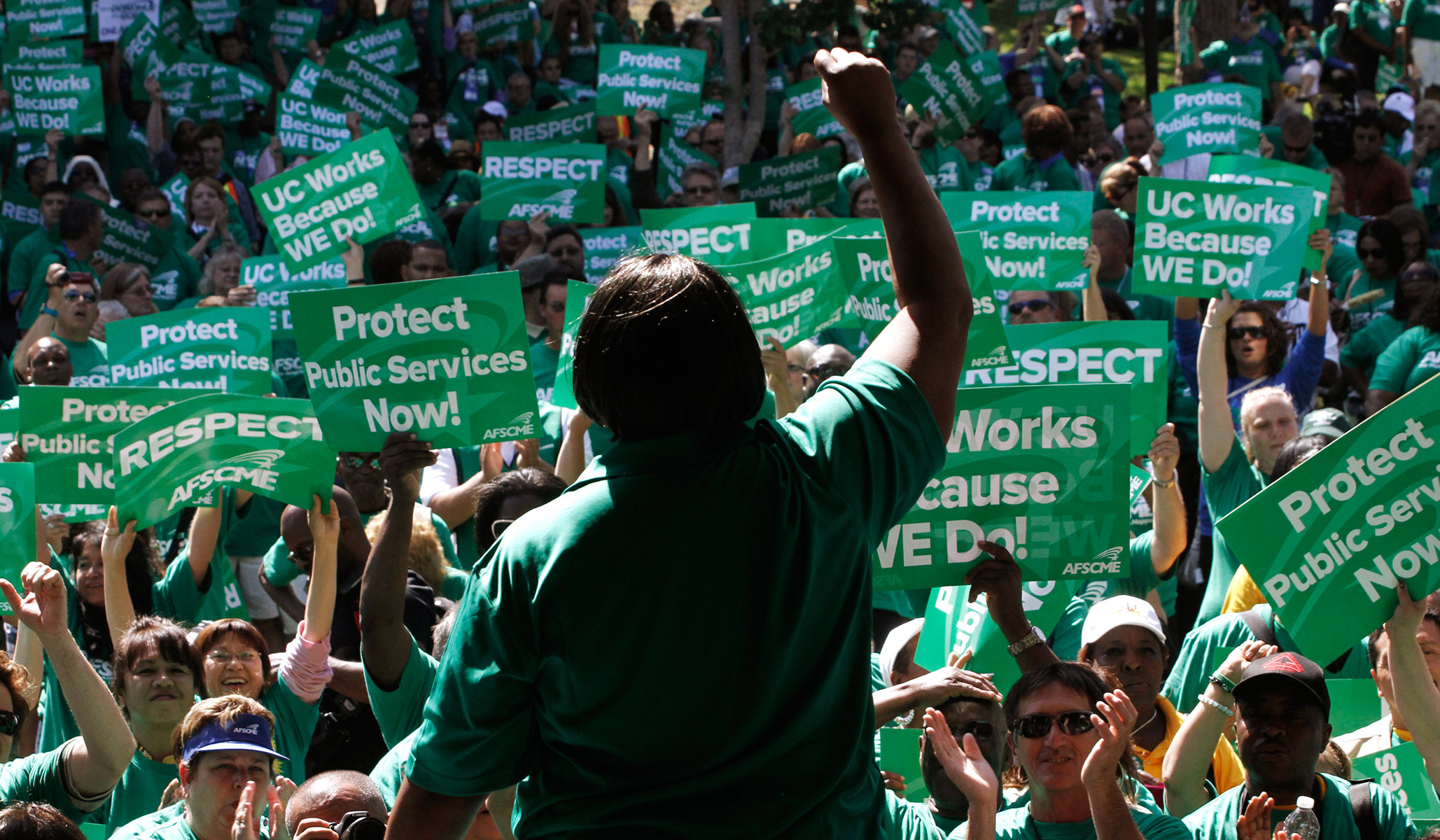


NRPLUS MEMBER ARTICLE I n the real world, you rarely get to have your cake and eat it, too. Then again, when did organized labor live in the same world or play by the same rules as regular folks?
Take, for instance, the slick way government-employee unions have arranged not only to have dues deducted from their members’ paychecks, but also to have the billing and accounting process handled by the employer — at taxpayer expense, no less. Not only is this a significant savings in time and money for the unions, but it amounts to what should be considered an in-kind contribution, directly from the government, to fund the union’s political activities.
Moreover, automatic dues deductions have the psychological effect of fostering the impression that dues and union membership are encouraged — and possibly mandatory — for public-sector employees, as they were for generations in about half the country until the U.S. Supreme Court banned the practice in Janus v. AFSCME nearly five years ago.
When it suits their purpose, of course, public-sector unions are quick to maintain that they’re nothing more than voluntary private organizations providing a service for thousands of workers, downplaying the built-in advantages that come with the designation of “exclusive representative” for a public-sector bargaining unit. Under those circumstances, unions are merely “private associations,” and they have shown no reservations about making that point to judges, including at the Ninth Circuit Court of Appeals in the case of Belgau v. Inslee (2020).
In that instance, the issue was whether a dues-deduction agreement was merely a “private contract” between employee and union or whether the state’s involvement — as the party that actually deducts the dues from employee wages and remits the money to the union — made this an issue involving state action and, thus, involving the First Amendment. After all, most private associations do not get to have their fees collected by the state paymaster.
In Belgau, the Ninth Circuit concluded that there wasn’t a sufficient state involvement to regard the union as a state actor, thus rejecting the employee’s claim that the union violated employees’ First Amendment rights. Conversely, when a state deducts dues in the absence of a private agreement between the employee and the union, the argument that this is “merely a private matter” seemingly falls short.
Such was the realization for Victoria Bright, from whose wages the state of Oregon deducted union dues and assessments even though she had not authorized either the union or the state to do so. In this instance, even the union admitted it had no right to money from Bright’s paycheck. That’s why last month Bright succeeded in getting a federal judge to issue a preliminary injunction against the state’s deductions.
So, here’s a thought: Let’s give the unions exactly what they want. If public-sector unions are indeed private organizations — just like any other business — they should have to collect their own bills. Let the union handle setting up accounts with its members, sending out invoices, and trying to collect. If government-employee unions want to be treated as “merely private organizations,” let them be just that. Do away with their automatic payroll deductions and let them bill their “customers” like any service provider. Or are the unions worried that no one would pay for what they provide if doing so required making the conscious effort to hand over credit-card information or write a check?
The Supreme Court has already ruled in Ysursa v. Pocatello Educ. Association that unions do not have a constitutional entitlement to automatic wage deductions for union political activities. Why should your taxpayer dollars pay for the government’s payroll processors to take out a monthly donation on behalf of a private organization?
And if the government is doing it for one political group, doesn’t fairness require it to do the same for all groups? Perhaps that’s why state legislatures across the country are taking steps to remove the government employer from the union dues-collection process, as is happening in Florida, Tennessee, Kentucky, and Arkansas. Hopefully, these states will start a trend this year.
It’s time to get the government out of the business of collecting money for partisan politics.
